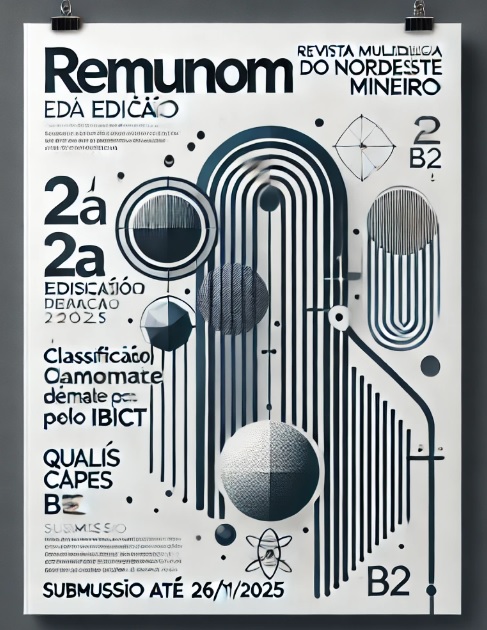English OLYMPIC JUDO CHAMPION ATHLETES: MOTIVATIONAL ASPECTS OF TRAINING
DOI:
https://doi.org/10.61164/rmnm.v2i01.3503Palabras clave:
Judo intrinsic motivation; extrinsic motivation; extracurricular physical activity; physical education.Resumen
Resumen
Los objetivos de este trabajo son identificar los factores motivacionales que hacen que las judocas entrenen durante un largo período hasta que finalmente alcanzan un alto nivel en judo en el equipo brasileño. El estudio utilizó cuestionarios cerrados de evaluación de valores de los miembros del equipo olímpico brasileño de judo, (muestra de 20 mujeres) 41 en total fueron evaluados. Tres profesionales expertos con reconocida y contrastada experiencia en competiciones de judo validaron los cuestionarios. Los resultados mostraron una lista de numerosos indicadores que se clasificaron y priorizaron, tales como: motivación para los resultados, hacer frente a la adversidad, pico bajo presión, establecimiento de metas/preparación mental, concentración, no preocuparse y querer entrenar. Todos estos valores fueron prevalentes en el cuestionario cerrado obtenido en este ranking. En conclusión, existen diferentes factores que motivan a los judocas a seguir practicando judo sin tener en cuenta las recompensas presentes sino futuras. Por otro lado, su resiliencia disminuye durante un período de tiempo más largo.
Palabras clave: Judo; motivación intrínseca; motivación extrínseca; actividad física extraescolar; educación física.
Citas
Almagro, B. J., Saénz-López, P., González-Cutre, D., & Moreno-Murcia, J. A. Clima motivacional percibido, necesidades psicológicas y motivación intrínseca como predictores del compromiso deportivo en adolescentes. Revista Internacional de Ciencias del Deporte, 25 (7), 250-265. doi:10.5232/ricyde2011.02501, http://www.cafyd.com/REVISTA/02501.pdf, 2011.
Biddle, S., Cury, F., Goudas, M., Sarrazin, F., Famose, J-P., & Durand, M. Development of scales to measure perceived physical education class climate: A cross-national project. British Journal of Educational Psychology, London, (65), 341-358, 1995.
Buss, D. M., & Cantor, N. Personality psychology: Recent trends and emerging directions. New York: Springer-Verlag. 1989
Confederação Brasileira de Judô. Retrieved from www.cbj.com.br/noticias/3707/engrenagem-do-judo-alavanca-desenvolvimento-da-modalidade-no-brasil.html. 2016
Correa-Londoño, G. A., Lavalett-Oñate, L. L., Galindo-Villardon, M. P., & Afanador-Kafuri, L. Uso de métodos multivariantes para la agrupación de aislamientos de Colletotrichum spp con base en características morfológicas y culturales. Revista de la Facultad Nacional de Agronomía, Medellín, 60, 3671-3690. 2007
Deci, E.L., & Olson, B. C. Motivation and competition: Their role in sports. In J. H. Goldstein (Ed.), Sports, games, and play (2nd ed., pp. 83-110). Hillsdale, New Jersey: Erlbaum. 1989
Deci, E. L., & Ryan, M. R. The general causality orientations scale: Self-determination in personality. Journal of Research in Personality, 19, 109-134, 1985
Deci, E. L., & Ryan, M. R. The "what" and "why" of goal pursuits: Human needs and the self-determination of behavior. Psychological Inquiry, 11, 227-268.2000
Deci, E. L., & Ryan, M. R. Handbook of self-determination research. Rochester, New York: University of Rochester Press. 2002
D'Orazio, M. StatMatch: Statistical Matching. R package version 1.2.4. https://CRAN.R-project.org/package=StatMatch 2016
Dos Santos, S. L. C. Jogos de Oposição: Ensino de Lutas na Escola. São Paulo: Editora Phorte. 2012.
Dos Santos, S. L. C., et all. Juegos de oposición: nuevas metodologías para la enseñanza de deportes de combate. E-balonmano.com: Revista de Ciencias del Deporte, (7), 45-62. 2011.
Escudero-López, J. T., Balagué-Gea, G., & Garcia-Mas, A. Estudio del conocimiento de variables psicológicas en entrenadores de baloncesto mediante una aproximación metodológica cualitativa. Revista de Psicología del Deporte, 11(1), 111-122. 2002
Gower, J. C. A general coefficient of similarity and some of its properties. Biometrics, 27, 857–871. 1971
Mahoney, M. J. Psychological predictors of elite and non elite performance in Olympic weightlifting. International Journal of Sport Psychology, 20, 1-12. 1989.
Mahoney, M. J. & Avener, M. Psychology of the elite athlete: An exploratory study. Cognitive Therapy and Research, 1, 135-141. 1977
Mahoney, M. J., Gabriel, T. J., & Perkins, T. S. Psychological skills and exceptional athletic performance. The Sport Psychologist, 1, 181-199. 1987
Martens, R. Sport Competition Anxiety Test. Champaign, IL: Human Kinetics. 1977
Ozer, D. J., & Reise, S. P. Personality assessment. Annual Review of Psychology, 45, 357-388. 1994
Petrie, T. A. Coping skills, competitive trait anxiety, and playing status: Moderating effects on the life stress-injury relationship. Journal of Sport & Exercise Psychology, 15, 261-274. 1993
Sarason, L. G. The Test Anxiety Scale: Concept and research. In CD. Spielberger & Sarason (Eds.), Stress and anxiety (5), 193-216). Washington, DC: Hemisphere. 1978
Smith, R. E. A cognitive-affective approach to stress management training for athletes. In C. H. Nadeau, W. R. Halliwell, K. M. Newell, & G. C. Roberts (Eds.), Psychology of motor behavior and sport-1979 (pp. 54-72). Champaign, Illinois: Human Kinetics. 1980
Smith, R. E. Effects of coping skills training on generalized self-efficacy and locus of control. Journal of Personality and Social Psychology, 56, 228-233. 1989
Smith, R. E., Ptacek, J. T., & Smoll, F. L. Sensation seeking, stress, and adolescent injuries: A test of stress-buffering, risk-taking, and coping skills hypotheses.7ºManual of Personality and Social Psychology, 62, 1016-1024. 1992
Smith, R. E., Schutz, R. W., Smoll, F. L. & Ptacek, J. T. Development and Validation of a Multidimensional Measure of Sport-Specific Psychological Skills: The Athletic Coping Skills Inventory-28. Journal of Sport & Exercise Psychology, 17, 379-398. 1995
Smith, R. E., & Smoll, F. L. Behavioral research and intervention in youth sports. Behavior Therapy 3(22), 329-344. 1991
AMADOR SALOMÃO, P. E. .; TEIXEIRA OLIVEIRA SANTOS, A. . EVOLUÇÃO E DESAFIOS NA AVALIAÇÃO CIENTÍFICA: DA CLASSIFICAÇÃO DE PERIÓDICOS À QUALIDADE INTRÍNSECA DOS ARTIGOS. Revista Multidisciplinar do Nordeste Mineiro, [S. l.], v. 1, n. 1, p. 1–18, 2025. DOI: 10.61164/rmnm.v1i1.3481. Disponível em: https://revista.unipacto.com.br/index.php/multidisciplinar/article/view/3481.
Spielberger, C. D., Gorsuch, R. L, & Lushene, R. E. Manual for the State-Trait Anxiety Inventory (STAI). Palo Alto, CA: Consulting Psychologists Press. 1970.
Williams, J. M., & Krane, J. M. Applied sport psychology: Personal growth to peak performance (2nd ed.). Mountain View, California: Mayfield. 1993
Descargas
Publicado
Cómo citar
Número
Sección
Licencia
Derechos de autor 2025 Revista Multidisciplinar do Nordeste Mineiro

Esta obra está bajo una licencia internacional Creative Commons Atribución-NoComercial-CompartirIgual 4.0.




